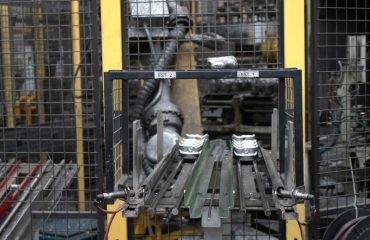The steel industry is a complex beast. Navigating the myriad of grades, specifications, and suppliers can be overwhelming, especially for businesses without dedicated metallurgical expertise. Making the wrong steel choices can lead to costly project delays, compromised quality, and significant financial losses. This is where technical consulting for steel buyers steps in, providing the knowledge and expertise necessary to make informed decisions and optimize your steel procurement process.
Understanding Your Steel Needs: The Foundation of Successful Procurement
Before diving into the specifics of steel grades and suppliers, a thorough understanding of your project’s requirements is paramount. Technical consultants work closely with clients to define their needs, considering factors such as:
- Application: What will the steel be used for? This dictates the necessary mechanical properties (strength, ductility, toughness), corrosion resistance, and weldability.
- Environment: Will the steel be exposed to harsh weather conditions, chemicals, or high temperatures? This impacts the choice of material and necessary coatings.
- Budget: Establishing a clear budget helps narrow down the range of feasible steel options. Consultants can help identify cost-effective alternatives without sacrificing quality.
- Lead Time: Project timelines dictate the availability and sourcing strategies. Consultants can help secure steel within the required timeframe.
Optimizing Steel Grade Selection: Balancing Performance and Cost
Choosing the right steel grade is critical. There’s a vast array of options, each with unique properties and price points. Technical consultants possess the metallurgical knowledge to analyze your specific needs and recommend the most suitable grade. This often involves:
- Material Property Analysis: Evaluating the required tensile strength, yield strength, elongation, hardness, and other relevant properties based on the application.
- Grade Comparison: Comparing different steel grades to determine the optimal balance between performance and cost. This may involve considering alternative materials with similar properties but lower prices.
- Specification Review: Ensuring that the selected steel grade meets all relevant industry standards and specifications.
- Testing and Verification: Overseeing material testing to verify that the delivered steel conforms to the specified requirements.
Navigating the Steel Supply Chain: Ensuring Reliable Sourcing
The steel supply chain is complex, with numerous intermediaries involved. Technical consultants can help streamline this process by:
- Supplier Identification and Qualification: Identifying reliable and reputable steel suppliers based on factors such as capacity, quality control systems, and delivery reliability.
- Negotiating Contracts: Assisting in negotiating favorable pricing and delivery terms with suppliers.
- Risk Management: Identifying and mitigating potential risks in the supply chain, such as material shortages or quality issues.
- Logistics Optimization: Optimizing the transportation and handling of steel to minimize costs and delays.
Implementing Robust Quality Control Measures: Protecting Your Investment
Maintaining quality control throughout the steel procurement process is crucial. Consultants can help implement strategies such as:
- Inspection and Testing: Overseeing inspections and testing at various stages of the process to ensure that the steel meets the specified requirements.
- Documentation and Traceability: Maintaining comprehensive documentation to track the origin, processing, and handling of the steel.
- Non-Destructive Testing (NDT): Utilizing NDT methods such as ultrasonic testing or magnetic particle inspection to detect defects without damaging the material.
- Corrective Actions: Developing and implementing corrective actions to address any quality issues that are identified.
Cost Optimization Strategies: Maximizing Value for Your Money
Steel costs can significantly impact project budgets. Technical consultants can help optimize steel costs by:
- Value Engineering: Evaluating the design and specifications to identify opportunities to reduce material costs without compromising performance.
- Negotiation and Procurement Strategies: Developing effective negotiation strategies to secure favorable pricing from suppliers.
- Inventory Management: Optimizing inventory levels to minimize storage costs and avoid material obsolescence.
- Waste Reduction: Implementing strategies to minimize material waste during fabrication and construction.
By engaging a technical consultant specializing in steel, businesses can significantly reduce risks, improve efficiency, and optimize their steel procurement process. The resulting cost savings and enhanced quality will ensure a successful project outcome and a stronger bottom line.
Ready to optimize your steel buying strategy? Contact us today for a consultation!




